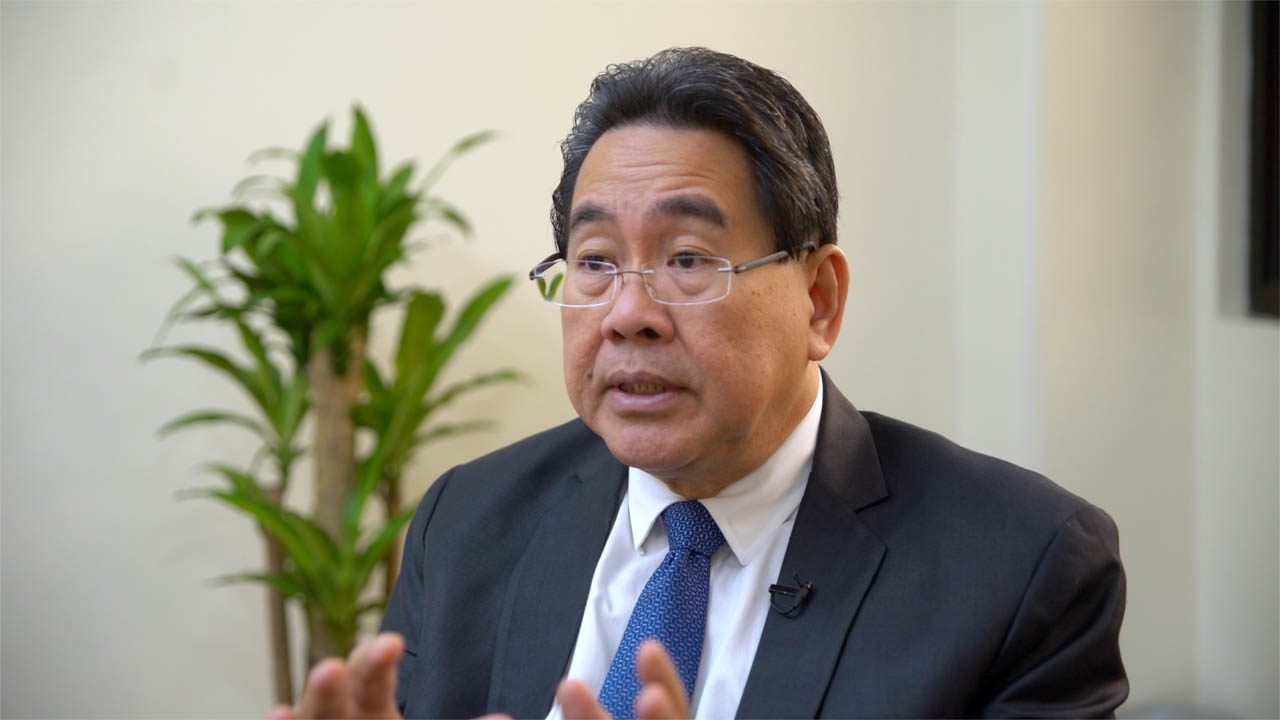SUMMARY
This is AI generated summarization, which may have errors. For context, always refer to the full article.

MANILA, Philippines – A lawyer turned lawmaker who principally authored the Good Conduct Time Allowance (GCTA) law now wants inmates involved in the prison drug trade barred from benefiting from the law.
Cagayan de Oro 2nd District Representative Rufus Rodriguez said he is working on a bill that would amend provisions of the GCTA law so that inmates who would commit crimes, including drug trafficking, while in prison would be disqualified from availing of the GCTA.
“But aside from [exhibiting] good behavior, they should not commit a crime while they’re in prison so that if they commit a crime, automatically there is no more good conduct for them,” said Rodriguez in a Rappler Talk interview on Tuesday, September 17.
“[If] you commit a crime, like you continue to have drug trafficking in prison, so that will disqualify you entirely from the coverage of this Act,” he added.
The Bureau of Corrections (BuCor) has been notorious for drug use, violence, and corruption among inmates and prison guards.
A recent Senate investigation revealed inmates and New Bilibid Prison officials are supposedly in collusion in the “GCTA for sale” scheme, while other prisoners are allegedly able to continue their illegal drug operations in the New Bilibid Prison Hospital by paying BuCor officers millions of pesos.
The GCTA law itself and the uniform manual earlier published by the Department of Justice (DOJ) and the Department of the Interior and Local Government (DILG) did not mention acts that can disqualify an inmate from the GCTA. (READ: Beyond Sanchez: How to improve the Good Conduct Time Allowance law)
The manual merely listed 49 prison rule violations – from willful waste of food to failure to stand at attention and give due respect to authorities – that would cause an inmate to lose points that could shorten his sentence under the GCTA.
In the past weeks, loopholes have emerged in the GCTA law after the DOJ itself raised the possible early release of convicted murderer and rapist Antonio Sanchez, after the Supreme Court made the law retroactive in July, or applicable to convicts prior to 2013.
Rodriguez said his proposed amendment would help ensure heinous crime convicts like Sanchez would be exempted from the GCTA.
“This will cover this kind of situation. So that you know, if you’re already a prisoner, [you should] never do any other crime again. Because if you do that, you would be disqualified. In fact, if you do another crime, there’ll be a hearing for that and you will be convicted for another crime. The more you’ll stay in prison,” said the lawmaker.
He also plans to add a new provision in the GCTA law that would explicitly state that recidivists, habitual delinquents, escapists, and those charged with heinous crimes cannot avail of the GCTA.
The DOJ and DILG already released new Implementing Rules and Regulations (IRR) on the GCTA law saying persons charged with heinous crimes and who were convicted after the law became effective in 2013 shall not be entitled to any type of GCTA.
The IRR also states that accrued GCTA shall be granted every end of the 2nd year, 5th year, 10th year, 11th year, and every year thereafter to encourage sustained good behavior.
Justice Secretary Menardo Guevarra, however, recognized that the law says GCTA shall be granted monthly. Guevarra said a revised manual would discuss it further, with the possibility of identifying disqualifying offenses. – with reports from Lian Buan/Rappler
Add a comment
How does this make you feel?
There are no comments yet. Add your comment to start the conversation.